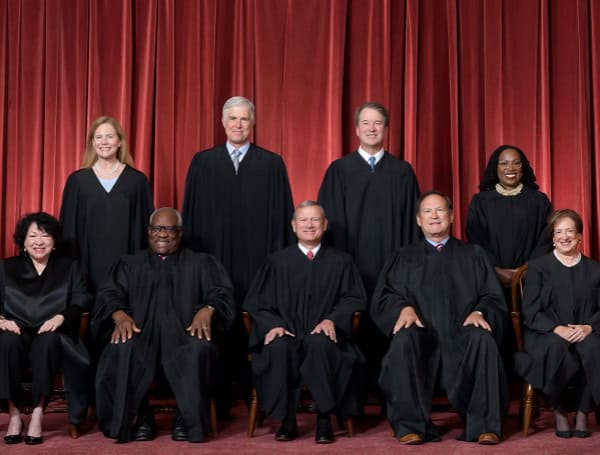The Supreme Court’s conservative majority appeared inclined on Thursday to curb the increasing use of nationwide injunctions that have stalled initiatives from the administration of President Trump. However, the justices grappled with the appropriate legal mechanism to achieve this during oral arguments concerning a plan to redefine birthright citizenship.
At the heart of the discussion was whether to permit the executive branch to move forward with its policy on birthright citizenship while lower courts continue to deliberate its legality.
The policy in question stems from an executive order signed early in the Trump administration that seeks to eliminate birthright citizenship for children born in the U.S. to parents without legal status. This initiative is based on a novel interpretation of the 14th Amendment to the Constitution, which has traditionally been understood to grant citizenship to all persons born or naturalized in the United States and subject to its jurisdiction.
Multiple federal district courts had previously issued orders blocking the implementation of this policy while its legality is being assessed. These temporary freezes were upheld by various appeals courts, prompting the Justice Department to seek intervention from the Supreme Court to lift these injunctions.
The core legal question before the Supreme Court was not the constitutionality of the citizenship policy itself, but rather the scope of a single district court’s power to halt a federal policy nationwide. The Justice Department argued that such rulings should be limited to the specific parties involved in the individual lawsuits. Solicitor General John Sauer characterized nationwide injunctions as a “bipartisan problem,” echoing sentiments shared by legal experts across the political spectrum who have expressed concern about their increasing frequency.
READ: Senate GOP Races Ahead With Trump Confirmations Despite Historic Roadblocks From Dems
Several conservative justices on the court have previously voiced a desire to limit the use of nationwide injunctions. During Thursday’s arguments, however, they raised significant questions about the potential consequences of allowing the citizenship order to proceed while its legality remains uncertain.
Liberal Justice Elena Kagan pressed Solicitor General Sauer on the implications of preventing lower courts from issuing nationwide freezes, particularly if the policy is ultimately deemed unconstitutional. She highlighted the scenario where thousands of children could be denied citizenship and left stateless during the potentially lengthy period before a final ruling.
READ: Pentagon Issues New Guidance On Gender Dysphoria, Prioritizing ‘Military Excellence’
Justice Kagan also questioned whether the executive branch might delay seeking a final ruling on the merits, thereby creating a situation without a clear national standard for citizenship.
Chief Justice John Roberts, often a pivotal vote on the court, appeared less troubled by these concerns. However, these points seemed to resonate with some of his conservative colleagues.
Ultimately, the questioning on Thursday did not provide a definitive indication of how the Supreme Court is likely to rule on the matter. The court’s decision, which could have significant implications for the power of lower courts to check presidential action, is expected by the end of June.
Please make a small donation to the Tampa Free Press to help sustain independent journalism. Your contribution enables us to continue delivering high-quality, local, and national news coverage.
Connect with us: Follow the Tampa Free Press on Facebook and Twitter for breaking news and updates.
Sign up: Subscribe to our free newsletter for a curated selection of top stories delivered straight to your inbox.
